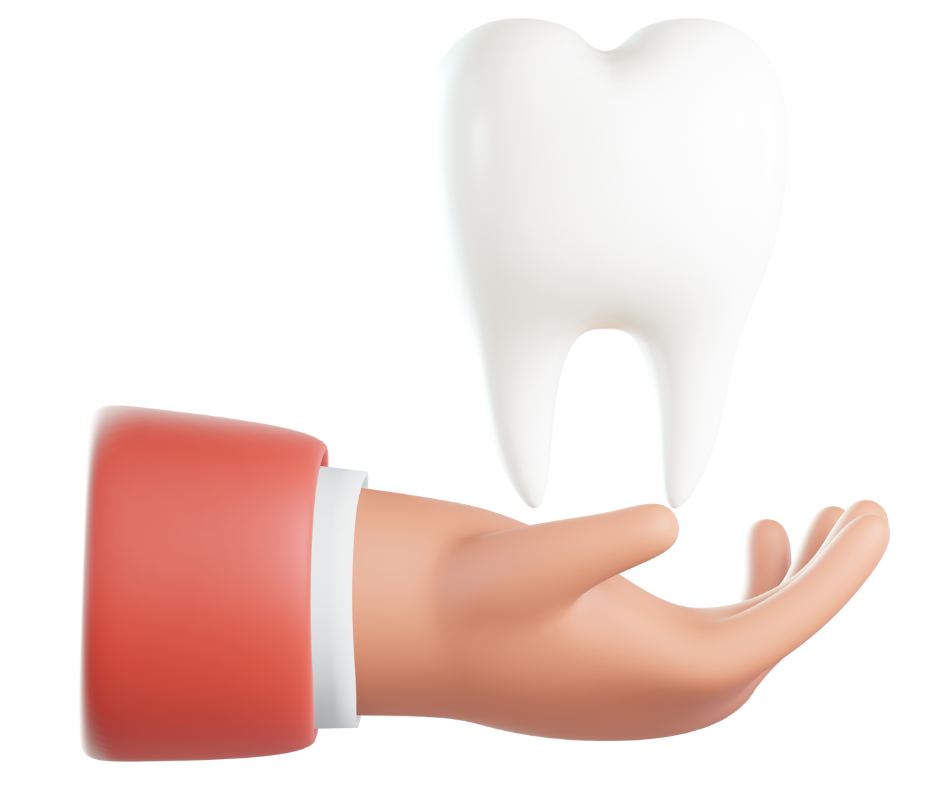Oral health is often seen as separate from the health of the rest of the body, but research is revealing a more interconnected picture. Your mouth isn’t just a tool for eating and speaking; it can reflect and impact overall health in ways you might not expect. Neglecting oral hygiene or ignoring gum disease, for instance, can lead to more than just a cavity—it can increase your risk for some serious medical conditions. Here, we explore the powerful link between oral health and systemic health and why maintaining a clean, healthy mouth is essential.

The Mouth-Body Connection
Our mouths are teeming with bacteria, many of which are beneficial or harmless. However, without proper oral hygiene, harmful bacteria can multiply and lead to infections, inflammation, and gum disease. Because the mouth is connected to the digestive and respiratory tracts, bacteria and inflammation from oral infections can spread to other parts of the body. If the bacteria travel through the bloodstream, they can trigger or worsen existing health problems, making the mouth a critical gateway to overall health.
Cardiovascular Disease and Oral Health
One of the strongest links between oral health and systemic health is with cardiovascular disease. Studies suggest that people with gum disease (periodontitis) are nearly twice as likely to develop heart disease. Gum disease causes chronic inflammation in the mouth, which can contribute to artery inflammation and atherosclerosis, a buildup of plaque in the arteries that increases the risk of heart attack and stroke.
Additionally, certain bacteria from gum infections can enter the bloodstream and attach to fatty deposits in blood vessels, contributing to clots. Keeping up with regular dental visits and addressing gum disease early on can be a step toward protecting heart health.
Read: E-Books: Your Guide to A Healthy Heart(Opens in a new browser tab)
Diabetes and Oral Health: A Two-Way Street
Diabetes and oral health have a closely linked relationship, each impacting the other. High blood sugar can increase the risk of gum disease because bacteria thrive on sugar. Meanwhile, gum disease can make it harder for people with diabetes to control their blood sugar, as infections make the body more resistant to insulin.
Uncontrolled diabetes can also lead to other oral health issues, such as dry mouth, which can cause decay and infections. For diabetics, a strong oral hygiene routine, regular dental check-ups, and careful monitoring of blood sugar levels are essential to prevent a cycle of worsening health.
Respiratory Health and Oral Bacteria
The bacteria in your mouth can be inhaled into your lungs, affecting respiratory health and increasing the risk of infections like pneumonia. This risk is particularly high for elderly individuals and those with compromised immune systems, where oral bacteria can contribute to or exacerbate chronic obstructive pulmonary disease (COPD) and other respiratory issues.
Regularly cleaning your teeth, gums, and tongue helps reduce the bacterial load in the mouth and, in turn, reduces the likelihood of respiratory problems. Dental hygiene is crucial for patients in long-term care or for those with existing lung conditions.
Rheumatoid Arthritis and Inflammation
The link between rheumatoid arthritis (RA) and oral health is rooted in inflammation. Both gum disease and RA involve chronic inflammation, and research has shown that people with RA are more likely to have gum disease. Some studies even suggest that treating gum disease can improve RA symptoms, as reducing oral inflammation seems to ease overall inflammatory responses.
People with RA may find it challenging to brush and floss due to joint pain, but working with a dentist to adapt their routine can help manage inflammation and protect both joint and oral health.
Oral Health and Pregnancy Complications
Pregnancy brings changes to hormones that can affect oral health, increasing the risk of gingivitis (inflammation of the gums). This makes dental care especially important for pregnant women, as poor oral health during pregnancy has been linked to preterm birth, low birth weight, and other complications.
Inflammation and bacteria from gum disease can potentially impact the placenta and amniotic fluid, so maintaining good oral hygiene and attending dental check-ups are recommended for expectant mothers.
The Risk of Dementia and Cognitive Decline
The relationship between oral health and brain health is one of the most surprising connections. Studies suggest that chronic gum disease may contribute to cognitive decline and increase the risk of developing dementia, including Alzheimer’s disease. Oral bacteria have been found in the brains of Alzheimer’s patients, and chronic inflammation from gum disease is believed to contribute to neurodegenerative changes in the brain.
By addressing gum health, there’s a potential to lower the risk of cognitive issues in later life, though more research is needed to confirm this connection fully.
Prevention is Key: Simple Tips for Better Oral Health

To prevent these health complications, maintaining a healthy mouth is essential. Here are some simple practices for daily oral care:
- Brush and Floss Regularly: Brush twice daily for at least two minutes, and floss once a day to remove food particles and plaque from between the teeth.
- Rinse with Mouthwash: An antimicrobial mouthwash can help reduce harmful bacteria and freshen your breath.
- Regular Dental Check-Ups: Visit your dentist at least twice a year for cleanings and exams with family dentistry in Lafayette, LA to detect early signs of gum disease or other oral health concerns.
- Stay Hydrated: Drinking water helps wash away food particles and bacteria that can cause gum disease and decay.
- Limit Sugary and Acidic Foods: A diet high in sugar and acidic foods can erode enamel and promote decay, leading to more significant oral health issues.
The Bigger Picture: Prioritizing Oral and Overall Health
The link between oral health and systemic health is a reminder that the body works as a whole, and taking care of one area often benefits others. By keeping up with your oral hygiene, you’re not just caring for your teeth and gums but potentially protecting your heart, lungs, and brain as well. So next time you brush or floss, remember that these simple actions are part of a larger effort toward maintaining your overall well-being.
Read: E-Books:Managing Health and Safety in the Dental Practice




